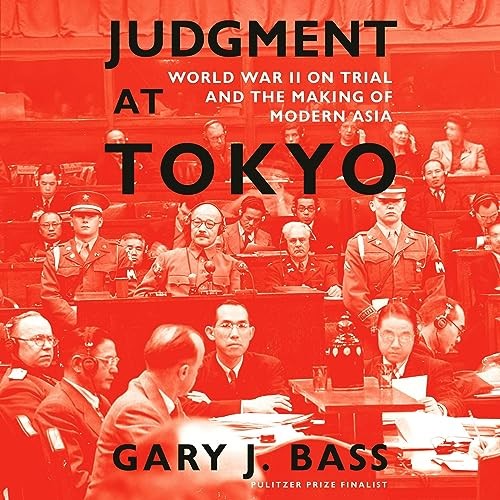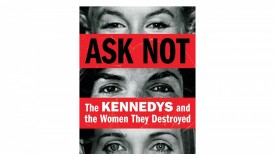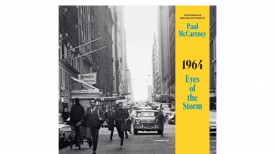Lessons on War and Justice

Judgment at Tokyo(Photo : Knopf)
The grim headlines of the Gaza and Ukraine wars make Judgment at Tokyo: World War II on Trial and the Making of a Modern Era, especially timely reading. Bass, an international relations scholar at Princeton University, crafts a splendid account of the Tokyo war crimes trials after the Second World War, looking closely at the lessons and limitations of the Allied attempt to administer justice to the defeated Japanese aggressors. The complex and flawed proceeding laid out the scale of death and destruction from Japan's 1931-1945 war in Asia and the Pacific, and the author dissects the intricate, imperfect process of adjudicating blame for the cataclysm.
The Allies faced numerous complicating factors setting up the International Military Tribunal for the Far East, making the 1946-48 proceedings less definitive than the Nuremberg trials that sent many top Nazi leaders to the gallows. While Bass asserts that postwar tribunals are appropriate, if not completely effective ways to mark the end of a conflict, his thorough, nuanced analysis of the political, personal and judicial complications that shaped the Tokyo trials make a foundational case for its imperfect results.
In 1946 the United States sat at the zenith of its global power as sole possessor of nuclear weapons and one of few Allied nations not subject to the ravages of the Second World War on its home soil. It took charge of occupying Japan and positioned itself as the unipolar postwar power in the Pacific, countering an expansion-minded Soviet Union and the ascendant Chinese Communist forces chipping away at Chiang Kai-Shek's corrupt, tottering Nationalist government.
General Douglas MacArthur, the imperious, politically conservative soldier who effectively ruled Japan during the occupation, sought to pin responsibility for the 1941 attack Pearl Harbor on the Japanese military leadership through the tribunal, while ensuring that Emperor Hirohito was not held responsible for the war. Despite plenty of evidence to the contrary, the emperor's continued reign was crucial to keeping Japan on side in the nascent Cold War.
Besides Hirohito's complex role in the war's origins, other Allied interests, going back to Japan's conquest of Manchuria in 1931, made a simple exercise in victors' justice impossible. Even the composition of the tribunal reflected the complex task at hand: America, Australia, Canada, New Zealand, Britain, France, the Netherlands, the Soviet Union, India, China and the Philippines all sent judges to Tokyo, representing nations baying for vengeance - and colonies seeking independence from these same victorious nations.
Readers learn the personal histories of the 28 leaders on trial, and the machinations of the U.S. to ensure that Emperor Hirohito was not held responsible for the war. For some, Bass argues, the trial was a miscarriage of justice. The verdicts, which sent wartime leader General Hideki Tojo and six other defendants to the gallows, 16 to life in prison, and acquitted six more, condemned several civilian government ministers who were hostage to a maniacally militaristic war cabinet and were unable to express antiwar views for well-grounded fears of assassination.
"The Tokyo trial was a political event," Bass writes. "It was a measure of Asia's colonial past and a prelude of its Cold War future."
It was also a harrowing lesson in recent history. Witnesses testified to wartime horrors such as the 1937 Rape of Nanking, the surprise attack on Pearl Harbor, the savaging of the Philippines during Japan's invasion and its 1944-45 liberation, as well as the barbaric treatment of POWs building the Thai-Burma Railway, where an estimated 16,000 prisoners died. Accounts from a bayonet-scarred 11-year-old Filipina girl describing Japanese troops stabbing her parents to death, an Australian doctor recounting the disease-ridden prison camps along the route of the death railway, and eyewitnesses to mass rape and indiscriminate slaughter in Nanking were only a few of the recorded examples of the brutality of the Pacific war examined by the tribunal.
The reader gets a clear understanding of the limitations of international law and imprecise definitions of "aggressive war," through lucid analysis that doesn't require a law degree to understand. Likewise, Bass dedicates significant space to many Japanese defendants' claims that the war was necessary to free Asia from Western imperialism, and that the use of the atom bomb and the devastating U.S. firebombing of Japan's cities would have been war crimes had the Allies been defeated.
Portrayals of two judges, China's Mei Ruao, seeking justice for a nation wracked by civil war, and India's Radhabinod Pal, who issued a 1,000-page dissent at the end of the proceedings, delve into the racial roots of the war and the optics of the tribunal's imperfect justice. Even Japanese relieved to be free of their military rulers saw the tribunal as "more a demonstration of white supremacy than of justice - part and parcel of a racist sensibility that had fueled the European colonization of much of Asia and then allowed the United States to pitilessly firebomb Japanese civilians and the use two atomic bombs on them. Pal's dissent earned him a memorial near the Yasukuni war shrine to Japan's war dead, which remains a locus of right-wing nationalism today.
Bass' a clear and lucid style rarely flags despite the weighty subject matter. His ability to weave grand themes and highly personal narratives through this single-volume history offers readers a thorough, accessible look at a flawed but crucial reckoning with the past and a prescient glimpse at the emerging postwar, postcolonial world order.
Judgment at Tokyo: World War II on Trial and the Making of Modern Asia | By Gary J. Bass | Knopf | 912 pp. | $46
© 2023 Books & Review All rights reserved.
Popular Now
1
Books to Read After 'Fourth Wing': Top Picks for Fantasy and Romantasy Fans

2
‘The Secret Public’ by Jon Savage Book Review: An Insightful Look Into the LGBTQ Influence

3
Stephanie Regalado's 'If They Only Knew' Column Is Now A Book, Unleashing 60 Anonymous True Stories to Empower Women

4
'No Wire Hangers' Scene That Almost Did Not Happen: New Book Reveals Faye Dunaway's Struggles

5
Rare First Edition of Aphra Behn's Novel 'Oroonoko' Discovered in Kent: A Historic Literary Find

Latest Stories
Book Reviews
‘The Secret Public’ by Jon Savage Book Review: An Insightful Look Into the LGBTQ Influence

Book News
Stephanie Regalado's 'If They Only Knew' Column Is Now A Book, Unleashing 60 Anonymous True Stories to Empower Women

Book News
'No Wire Hangers' Scene That Almost Did Not Happen: New Book Reveals Faye Dunaway's Struggles

Book Reviews
‘The Perfect Couple’ by Elin Hilderbrand Book Review: A Captivating Summer Mystery

Book News
New Book ‘The Franchise’ Reveals Penguins President Kyle Dubas’ ‘Biggest Mistake’ as Maple Leafs GM











